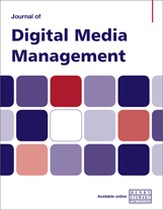Case study: Creating a fully accessible digital archive of the American Foundation for the Blind’s Helen Keller Collection
Abstract
The American Foundation for the Blind’s Helen Keller Archive (https://www.afb.org/HelenKellerArchive) is the world’s largest repository of letters, speeches, press clippings, scrapbooks, photographs, artefacts and audiovisual materials relating to Helen Keller — the first deafblind person in the USA ever to graduate from college. Keller worked at the AFB from 1924 until her death in 1968, during which time she became a world-famous author, activist and advocate for disability rights. A mammoth digitisation project, funded by the National Endowment for the Humanities and further supported by American Express, set out to preserve the rich primary and secondary source materials related to this groundbreaking figure in the history of disability rights, and create a collection that was fully accessible to audiences who are blind, deaf, hard of hearing, low vision or deafblind. This case study describes the work involved in creating digital surrogates for all items, including photographing delicate Braille materials; adding captioning and audio description to film clips; customising a digital archive management system; and extensive usability testing with diverse participants. The finished system achieves the AFB’s two core objectives: (1) presenting these materials in multiple accessible formats, so that students and researchers with a variety of access preferences can use the archive easily, and (2) setting a higher accessibility standard on which all digital archives can build.
The full article is available to subscribers to the journal.
